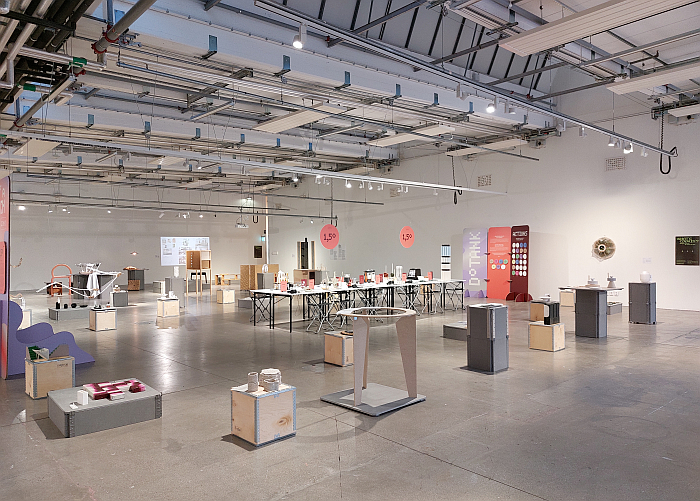
Stockholm's Konstfack university of arts, crafts and design used the occasion of Stockholm Design Week 2025 to present the results of a number of semester projects including, for example, Innovation for Resilience which concerned itself with questions of circularity and sustainability in the infrastructure of camps for the displaced; Half Past Five at our Place, a cooperative project involving kitchenware undertaken in conjunction with pupils at Stockholm's Kung Saga Gymnasium; or Air Ship. Life in the air 2040 which posed the question if airships might be the better alternative to airplanes, and if so how might the interiors look, and which although it produced a couple of interesting propositions, arguably, produced nothing quite as elegant as Bernhard Pankok's basketry chairs from the earliest passenger Zeppelins, nor the ever joyous steel tube chairs from the later Zeppelin lounge.
And also presented the snappily titled Future Food Product Service Systems in 2060, a project that was part of a tandem of inter-connected projects that asked students of the Design Ecologies Masters programme for "technocentric" and "ecocentric" responses to the challenges of food supply for and on an ever warmer planet.
A semester project that stood and stands as a very nice example of a speculative design research project, one where you imagine a future as it may or may not arise and develop responses that may or may not work, may or may not be possible, but which, in the ideal case, allow access to perspectives and paths of thought that lead to responses that are possible and do work in the future reality as it actually emerges; the sort of thing that all too often is tarred with the lazy misnome Science Fiction rather than being understood as the cultural fact it concerns itself with.
And a project on future food whose responses included, somewhat inevitably, the mealworms that, as noted in context of Second Season by Ebba Lönn, design students have been developing projects to encourage Europeans to cultivate and eat for many a long year now, and which, in our opinion, is a reality that will never, ever, occur in Europe. Unless that is you happen to eat bread or cheese in the EU, in which case you probably are eating mealworms. Alternative foodstuffs for an alternative future which Europeans may or may not consume that also featured in Émilie Gibert's Tidal Treats which proposes "using traditional aspic techniques and nutrient-rich microalgae" to transform the ostensibly unconsummable jellyfish into a foodstuff for human consumption, including, judging by the presentation, jellyfish as tart cases, savoury or sweet one presumes, as a taco alternative or as a fettuccine alternative. And jellyfish chosen not least on account of the number that may be in our substantially raised oceans by 2060, and thus a neat example of trying to use the source of a problem as a meaningful response to that problem. Not quite clouds and silver linings, but stoically in that sort of direction.
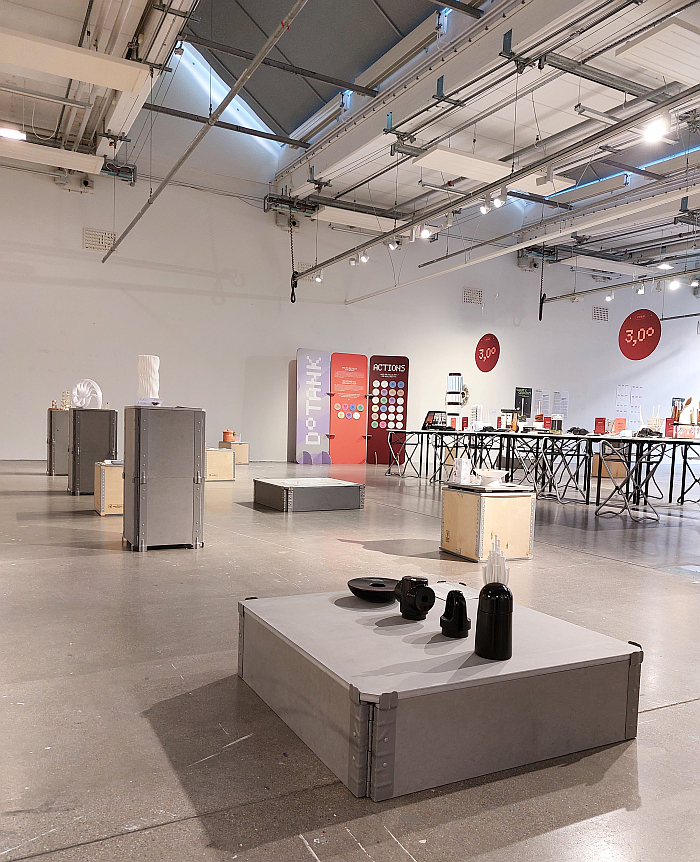
Elsewhere we spent a lot of time with, amongst other proposals, Anna Maier's Relay Zeer, a variation on that off-grid, electric-free, refrigeration system as employed in a great many regions of the globe, a project that caught our attention not least on account of the fact it employs that Europeans-learning-from-peoples-who-have-more-experience-of-living-in-warm-climates-than-us principle that would be useful to practice going forward but that we in Europe are all very resistant to practising, convinced as we are Europe has all the best answers, convinced we in Europe should be telling peoples outwith Europe what to do; Grow Beyond by Tini Warg which, if we've understood correctly, envisages a future in which the corpses of humans are employed as a form of nutrient for the soil to promote and support the growing of foodstuffs, if one so will, a bequeathing of us all a function after our inevitable demise, once we're under the earth rather than on the earth, and which echoes with the project Was Bleibt by Anna Freudenberg as seen at the Burg Giebichenstein Kunsthochschule Halle Jahresausstellung 2023 and its reflections on human compositing and burial rituals and ceremonies in a coming future. And which, yes, is an extreme take on circular, but we could be heading for very extreme times. Or Brohwyn Brennan's Ecomasulinity in which, having predicted that climate change will lead to men redefining masculinity as a more ecocentric identity, an aspect of a wider shift towards a human society more in tune with nature, Brohwyn developed a collection of tools to "help men tap into ancestral traditions while embracing plant-based diets". Which is a lot of discussion points in one project. A state of affairs of which we very much approve.
However, for us, the most informative, and the most pleasing aspect of Future Food Product Service Systems in 2060, was the mix of novel-tech and old-tech solutions presented, the access the presentation offered to that long posed question of how we move forward as a society, to what degree should, must, we embrace the novel and where and why should we maintain faith in the established? How does the balance look?
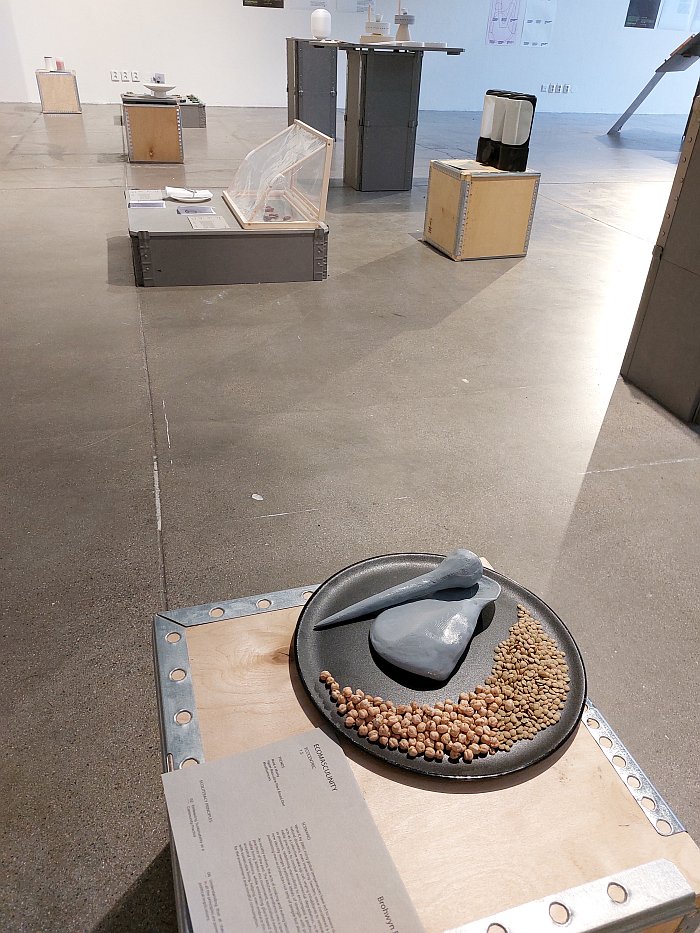
Old-tech as represented by projects such as, for example, Soraya Hassan's modular flour mill for the home grinding of a variety of grains; Rebecka Österlund's glazed clay jars for encouraging, promoting, home vegetable fermentation as a form of food security through the glazed clay jars doubling as decorative objects; or Anna Maier's aforementioned Relay Zeer.
Novel-tech as represented by, for example, Andreas Lejon's ruminations on digital food culture, that space where technology simulates eating to mask over the food shortages, and that stands as an alternative to our contemporary injections to stop the brain thinking about and demanding food; Åke Andersson's VitaPak, a plastic sack that intravenously supplies the nutrition you need, a variation on the all-your-nutrition-in-a-pill solution generations past were convinced science would one day develop; or Brohwyn Brennan's Technomasculinity which, and very much in keeping with the aforementioned Ecomasulinity, discusses the home cultivation of cultured meat, in effect a variation on home cultivation of mealworms, but specifically as a cultivation carried out by men, a home farming of cultured meat carried out by men in context of a changing definition of masculinity, a changing expression of masculinity, a changing relationships of masculinity to the material and immaterial environment, caused by, enabled by, climate change. Which pleasingly adds to the many discussion points of Ecomasulinity.
And a mix of positions on possible futures, on responses to possible futures, on "technocentric", on "ecocentric", on old-tech and novel-tech, that allows and allowed for some very nice differentiated reflections on a future that is coming but whose reality isn't yet fixed. A future reality that is very much in our hands, and to a large degree will be defined not only by the decisions in context of the utilisation of old and novel technology we make today, but the decisions we make in terms of nutrition, food production and food supply we make today. How does the balance look? ¿How should the balance look? And which through the access to thoughts on more immediate questions and realities made and makes Future Food Product Service Systems in 2060 also Food Product Service Systems in 2025.
Which is that other nice thing such a speculative design research project can instigate and stimulate, that rephrasing of an Adam Michnik's "thinking about history is simply part of reflections about the present and the future"1 as thinking about the future is simply part of reflections about the present and history. A reminder of the very real need to take a panoramic view of any and every question. And to include as many opinions as can be accommodated.
More details on Future Food Product Service Systems in 2060 can be found at www.konstfack.se
Stockholm Design Week 2025 has now ended, details on what you missed, on the event in general and when the 2026 edition is being staged, can be found at https://stockholmdesignweek.com
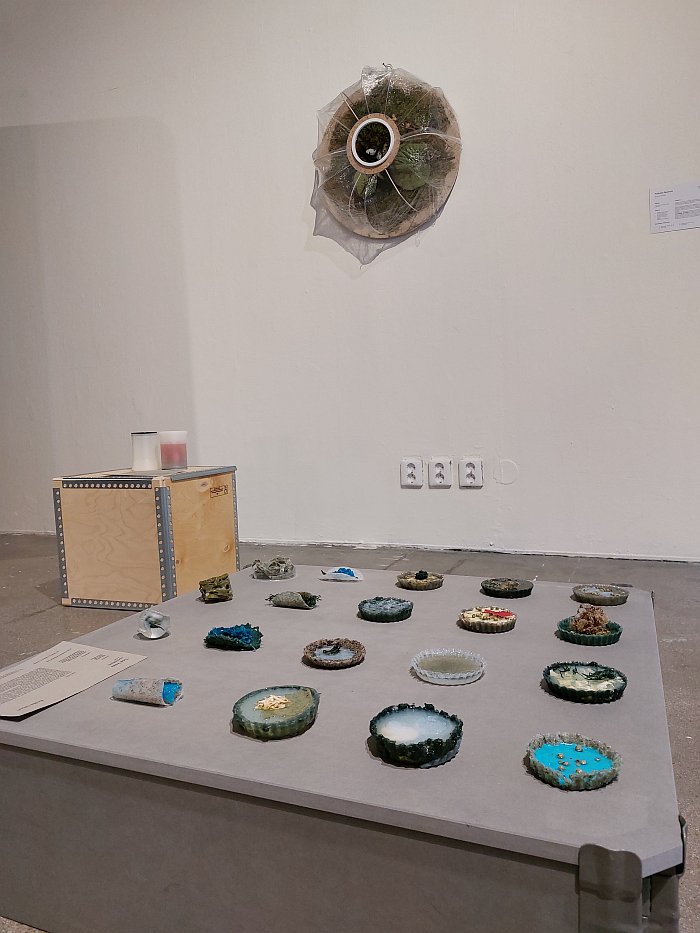
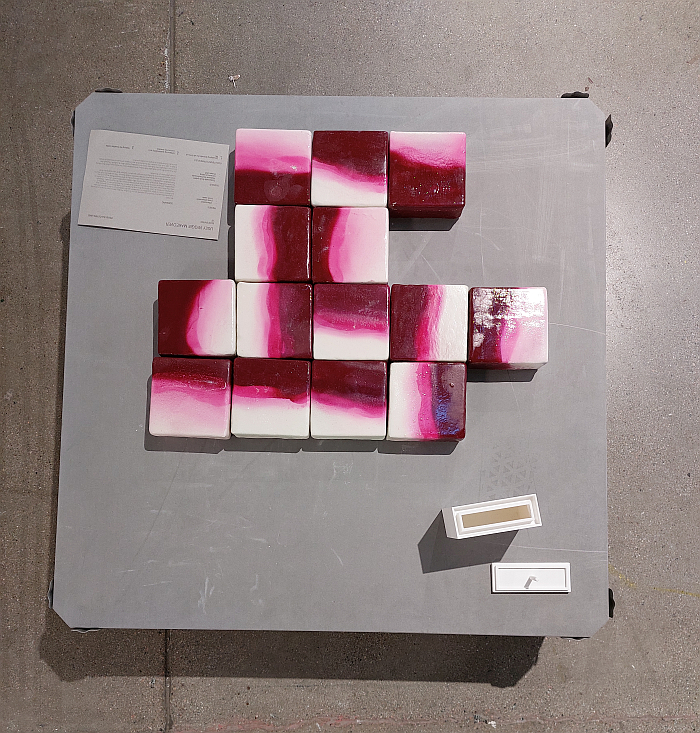
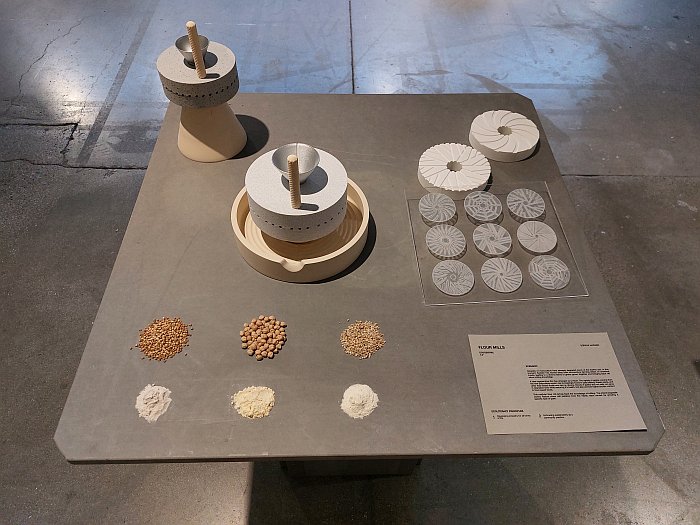
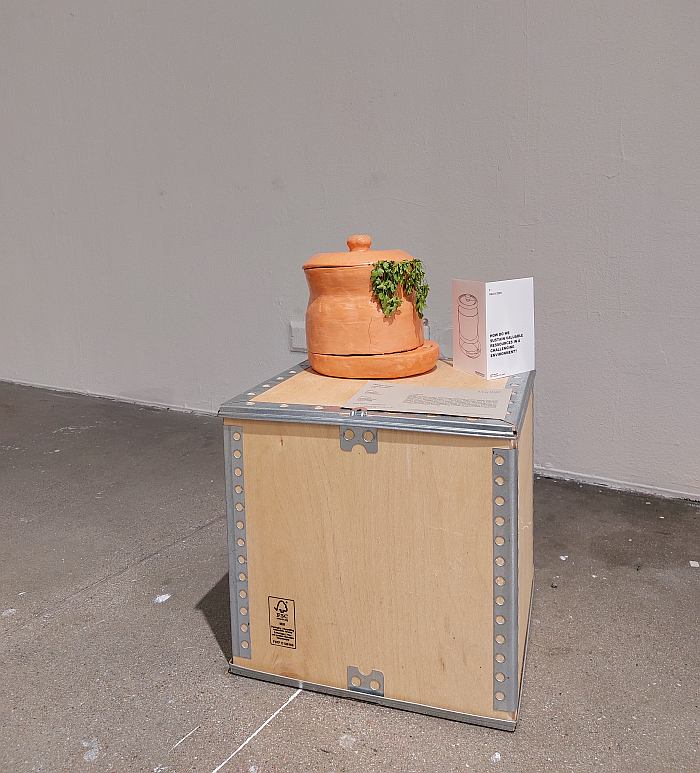
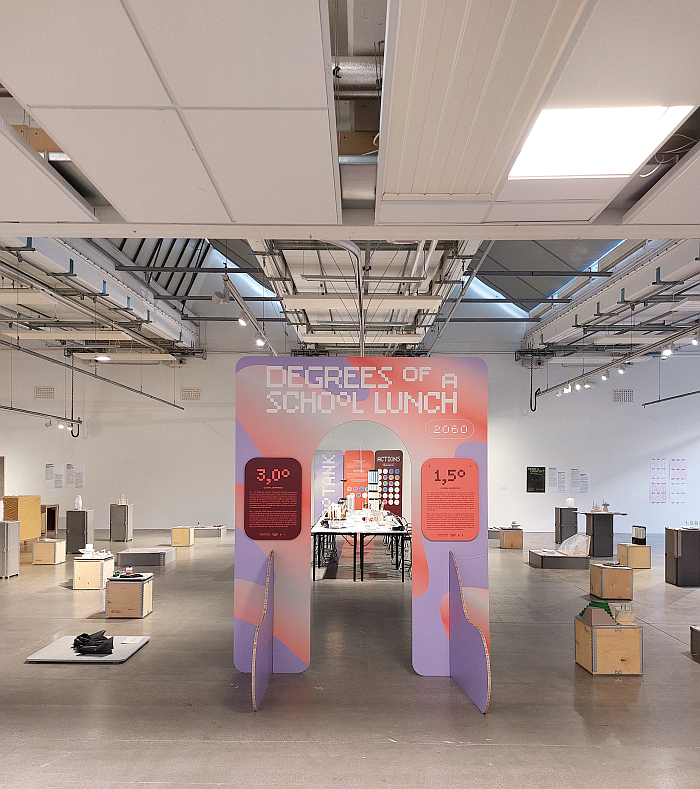
1Adam Michnik, The Dispute over Organic Work, 1975, reproduced in Adam Michnik, Letters from Prison And Other Essays, University of California Press, 1987